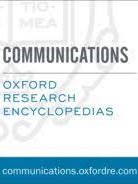Summary
Networks of experts coordinated or orchestrated by international bodies have become so widespread and influential that they are said to shape a new world order. Standards for consumer safety, investor protection, and environmental sustainability are governed by appeals to the epistemic authority of experts. Typically, formal international organizations orchestrate cross-border constellations of public–private collaborations between groups that are deemed to have relevant knowledge. This trend is part of a depoliticization of decision-making; policy issues are framed as technical problems that should be kept at a distance from party politics. The question here is how to conceptualize and assess this development in democratic terms.
In political theory, three kinds of approach have evolved in response to this trend. At one extreme, the argument is that governance beyond the state cannot be legitimate until it has implemented modes of representation and contestation familiar from the domestic context. At the other extreme, the argument is that legitimacy beyond the state should be decoupled from democratic concerns and be legitimated on technocratic grounds. Between these two poles is the argument that democracy does not have to resemble the domestic model in organizational terms and can fruitfully be reconceived or reinterpreted in the international context. Versions of the reinterpretive approach are currently popular under different theoretical labels. It is fruitful to use it as a model for considering questions of democratic legitimacy for the expert networks that constitute or interact with international organizations.
In following the reinterpretive route, a natural starting point is to consider what the key evaluative dimensions of democracy are. At an abstract level, democracy is about three main considerations:
1. Authorization: The people are the rightful principals of public action. It is necessary to consider how people can be empowered to challenge and potentially veto opinions that flow from expert networks.
2. Attitude: Democratically justified institutions express the right kind of concern for people as equals. There are important questions about how the technical rationalities of expert networks can show consideration for a reasonable pluralism of perspectives and how “soft law” can address subjects with appropriate respect for citizens’ claim to justification and rule of law.
3. Area: The authority of democratically legitimate institutions must be matched by a defined sphere of answerability. For the area of expert networks, this issue concerns both the scope of expert mandates and whether there is a fit between mandate and actual practice.
The task for an assessment of the democratic legitimacy of expert networks is to consider more fully what each of these evaluative dimensions imply in the relevant context.
Full info
Andreas Eriksen.
"Expert Networking and International Governance: Questions of Democracy."
Oxford Research Encyclopedia of Communication.
Online first, 2021. DOI: 10.1093/9780190228613.013.1122
